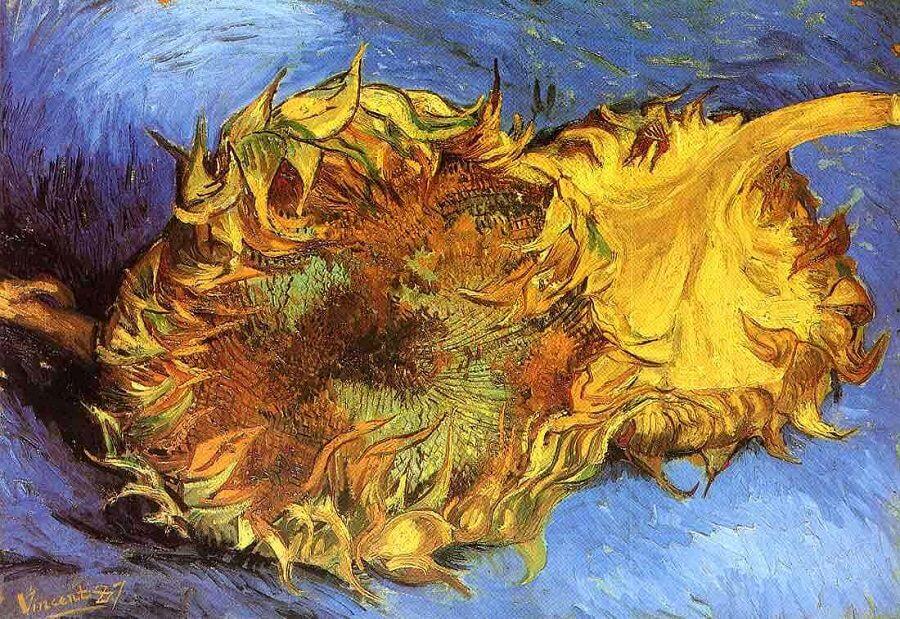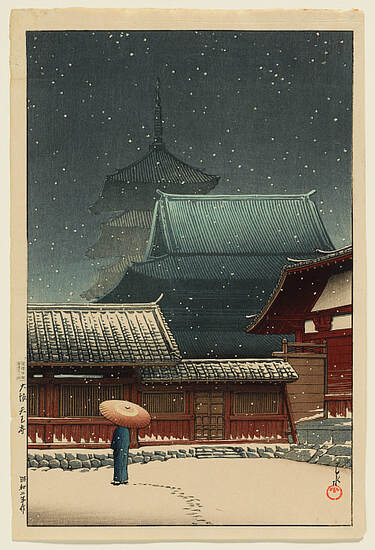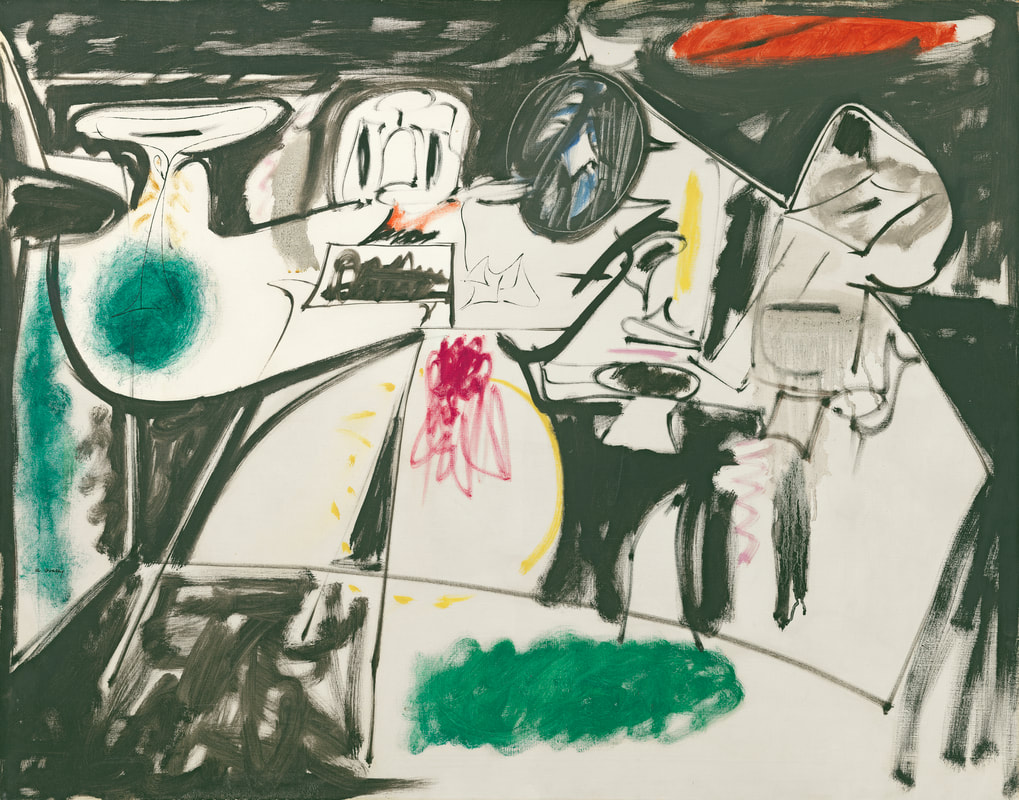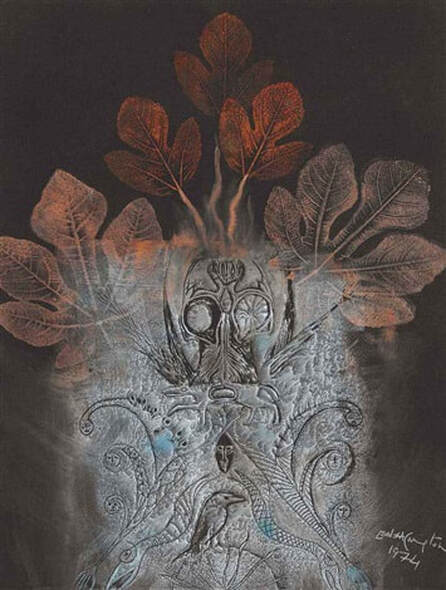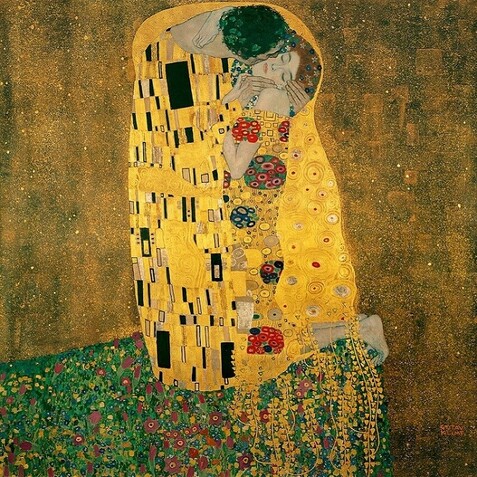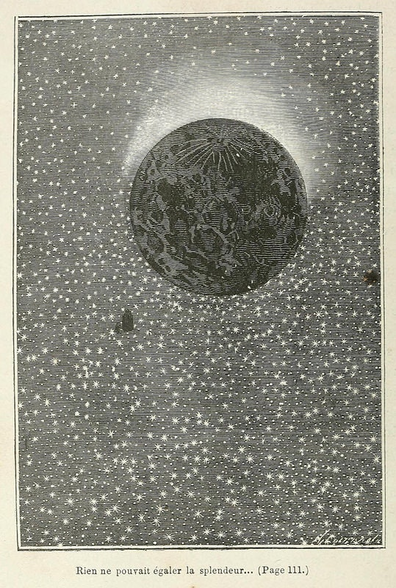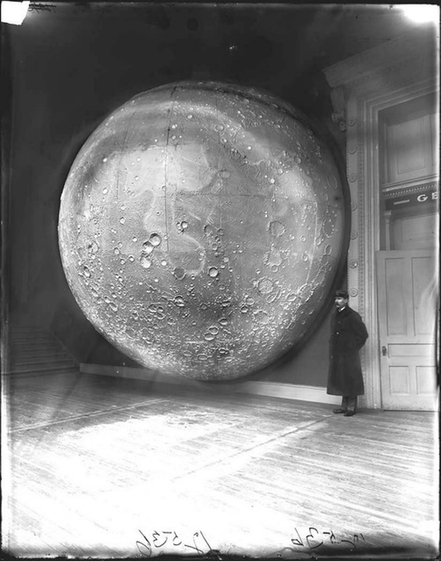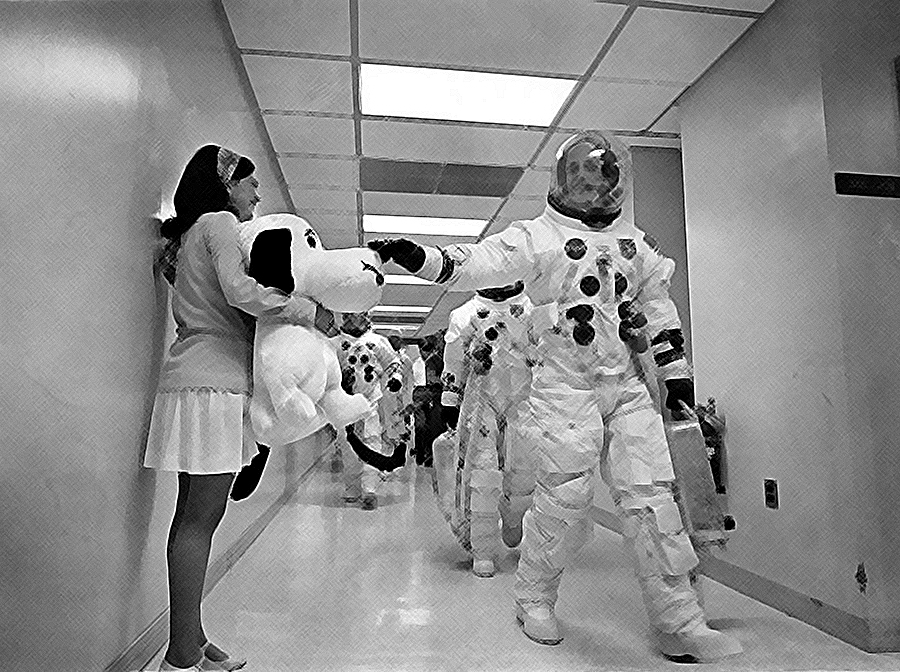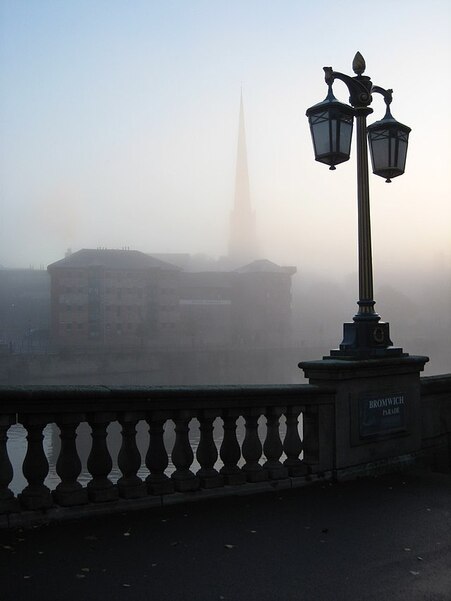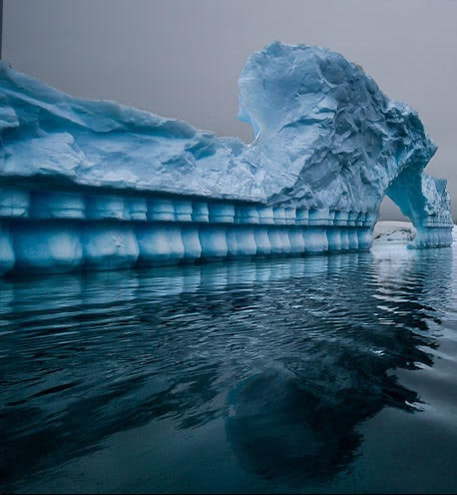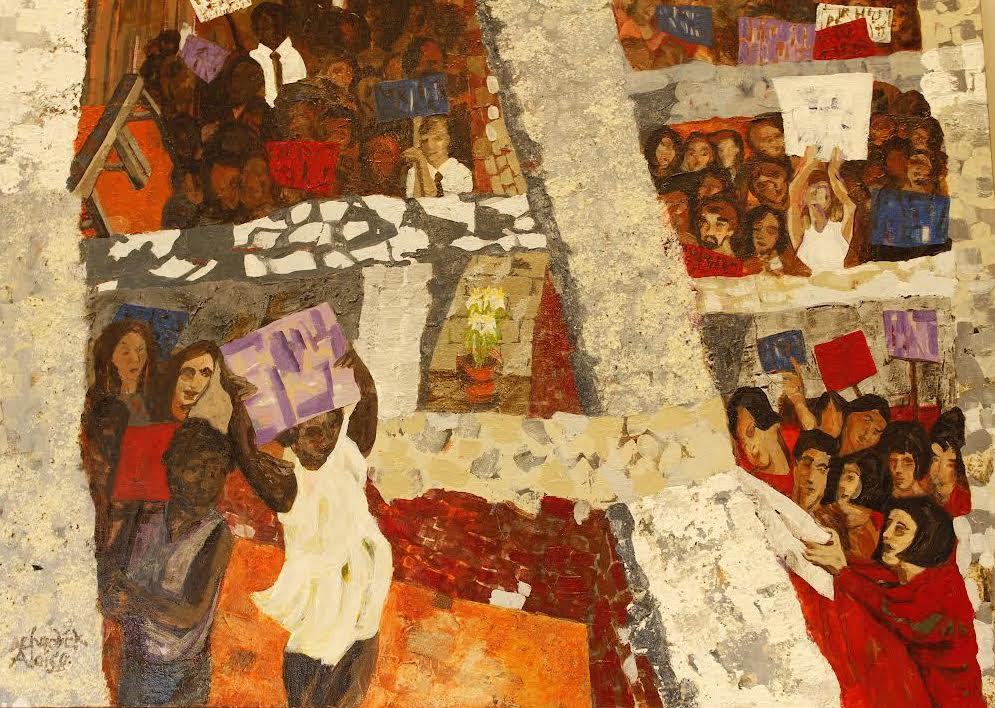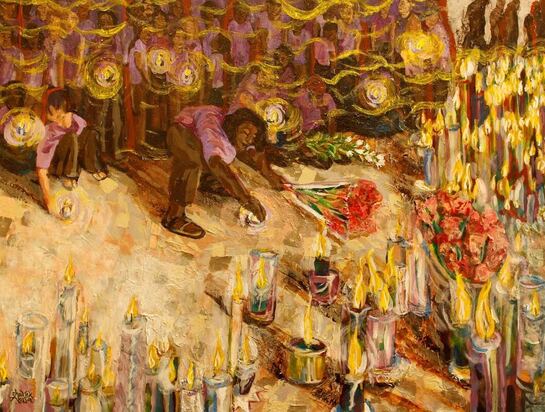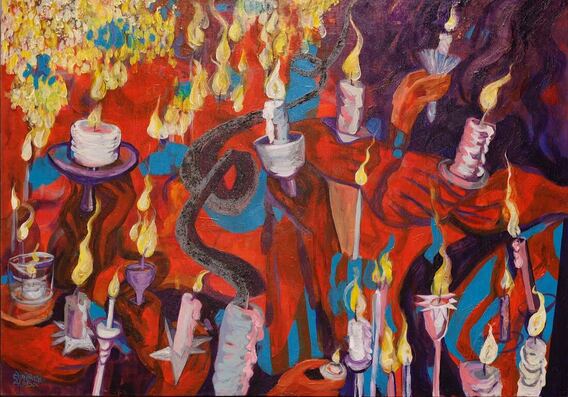|
“How Lovely Yellow Is!” My Dear Theo, I have found myself in the flower gardens of Montmartre and have immersed my life in yellow! In my mind, it stands for the sun, a blazing star of ochre-chrome newly opened in a troubled sky. Such discovery is a rare seed like a citrine of deepest fire waiting to explode when the universe can no longer hold the bloom. Its blaze of raw saffron melds with shades of iron cadmium. My rooms are a smother of platinum; goldenrod tendrils invade my brain with an intensity close to insanity. Kate Young Kate Young lives in England and has been passionate about poetry since childhood. Her poems have appeared in The Poetry Village, Words for the Wild, Poetry on the Lake, Alchemy Spoon, Dreich and The Poet. She has had poems in two Scottish Writers Centre chapbooks. Her work has also featured in the anthologies Places of Poetry and Write Out Loud. Her pamphlet A Spark in the Darkness is due to be published by Hedgehog Press next year. Find her on Twitter @Kateyoung12poet.
0 Comments
Haiku whether stars or snow the splendid night beckons us to add our footprints Kitty Jospe MA French Literature, New York University; MFA Poetry, Pacific University, OR. Art Docent (Memorial Art Gallery, Rochester, NY) since 1998. Since 2008, Kitty has been moderating weekly poetry appreciation sessions and occasional presentations on art and word. (Since March 2020, these are conducted by zoom.) Known for her contagious enthusiasm, she embraces the joy of working with language, art, and helping others to become good readers of poems, people and life. Her work is in 6 books, published since 2009 and in numerous journals and anthologies. Her latest book, Sum:1 is available from FootHills publishing: http://www.foothillspublishing.com/2021/jospe.html Arshile Arshile jan[1], if we had been friends I would have smoked cigarettes with you until my throat was raw and made you listen to Billie Holiday (did you know “Strange Fruit”?) while nursing vodka (I would have hated but conceded to) just for you. I read you loved vodka. Arshile, you could have rung my apartment bell at any hour of the night and I would have let you in, cradled your face in my hands, consumed by your wild, vacant eyes and said nothing. Love could not transcend the shadow of ghosts that claimed you long before you escaped, fled the shores of Lake Van, your mother’s bosom cold from death – a body that could no longer soak up your child tears. This is not why I love you. Arshile, I would never have been so star-struck that your death could have surprised me, but I would never have forgiven myself for not deciphering the suicide note in the slants of your abstractions and unsettling hues of teal, magenta, annihilated by frenzied strokes of black.[2] They incriminate you but, I would not have seen. All I know is that your face, your dark moustache, the grace of your troubled eyes and swept back hair leave me to think that I could not have saved you, and loved you nonetheless. Aida Zilelian [1] An abbreviation of the Armenian word ‘janig’ (a term of endearment – i.e. darling, love [2] Arshile Gorky’s last painting, Last Painting (The Black Monk) 1948 Aida Zilelian is a first generation American-Armenian writer and educator from Queens, NY. Her fiction explores the depths of love and family relationships, culture and the connections between characters that transcend time and circumstance. Her first novel (unpublished) The Hollowing Moon, was one of the top three finalists of the Anderbo Novel Contest. The sequel The Legacy of Lost Things was published in 2015 (Bleeding Heart Publications) and was the recipient of the 2014 Tololyan Literary Award. Aida has been featured on NPR, The Huffington Post, Kirkus Reviews, Poets & Writers, the New York Times, and various reading series throughout Queens and Manhattan. Her short story collection These Hills Were Meant for You was shortlisted for the 2018 Katherine Anne Porter Award. Effigy The Fig Mother, always overlooked a shade—an outline—etched on a canvas but never filled in drawn first to the bird, feasting on her fruit the snakes, tempting her branches the Shaman’s mask that seeks her heart the she-wolf that suckles in her crown seen for her fruit only, what she can produce the reason why she’s valued at all ignore the figs removed from her face plucked out like eyes from a skull even as she ages and no longer flowers stripped, cut down, distributed— still providing shelter even as she burns, she remains silent whispers of blue seep through the smoke ultimately consumed, spent until nothing is left all the while content to provide warmth and one last hot meal for our hungry bellies Gage Michael Wheatley Gage Michael Wheatley is the Founder and Editor-in-Chief of Bird Bath Magazine. He has a Bachelor's Degree in Classics: Archaeology and Ancient History, with a minor in Art History. Gage loves to weave mythology, art and history into his poems that often reflect deeply personal aspects of his body and/or psyche. When bored, Gage has a tendency to move furniture around his apartment, cut or dye his hair, or get a new tattoo--his partner is never too happy with any of those choices. Apollo’s Kiss After the Hurricane Is nothing like before the storm, when he had created the golden child with Daphne. More mechanical, now. Sharper. Geometric, his mouth a square. Walking miles and miles to the aid station for food and water and a yellow tarp, Apollo has lost his roundness. Purposeful, with a biological duty. Apollo believes they must replace who he fears they have lost. But his kiss is kind, as is his body. Nothing goes harder or deeper into Daphne than is necessary. She is exhausted too, her face finally still. His is not, and he hides it in her hair. Tomorrow, Apollo will stand in a long line. At the far, far end will be men with clipboards compiling lists of the missing. They will want details — distinguishing marks, what Laurel was wearing, where she was last seen — but no embellishments. Nothing about how the girl shone, gathered wildflowers. Singular. One kiss, like a sip or a spoonful, doled out at a time. One by Apollo on Daphne’s pale cheek with each. ‘She was wearing her purple jacket, wasn’t she?’ Kiss. ‘And orange boots?’ Kiss. ‘She was in your arms. You tried to hold on as the wind and the water rose.’ Kiss. Karen Walker Karen Walker writes short fiction in Ontario, Canada. Her work is in Reflex Fiction, Sunspot Lit, Unstamatic, The Disappointed Housewife, Retreat West, Five Minute Lit, Sundial Magazine, 100 Word Story, and others. She's at @MeKawalker883. The Great Moon Hoax Lunar goats, tame unicorns, Vespertilio-homo bat about the noosphere, in some shadow of Eden, as substantial as Sherlock on the cobbles of London. We will build a lunar vale for gliding in one-sixth G, and for the delight that lit the Great Moon Hoax, christen it The Ruby Amphitheater. We will fly. Lagrange Points Splendeur… Vector sum of manifold tides, sum of covalent harmonics, derivative of whispers amongst our ancestral stars, sensitive to quantum flux, Our true weight is incalculable. Attending Luna Swiss on rye, a pickle, and stout for lunch. Yet I am the Chief Warden of the Moon. The flood tide of the reverent and irreverent - all eager to touch a crater’s wine-glass rim, the flow of a sea, to caress the Moon - ebbed with the close of the White City. Now, it’s schools of school trips, stray professors, and the odd ones – tall, lanky, wary, sketching lines and loci in the air with long fingers, offbeat languages. Sometimes from the corner of my eye, from the corner of my mind, I see lights of cities, the run of railways, spires taller than the Moon is wide. I am the Chief Warden of the Moon. I attend its silvery magic. The Pursuit Hexagram Tui, The Joyous The math is clear the weather fine a good day to leave the world thunder up to the silence Suited up pat Snoopy the pursuit of happiness is not just fine math, clear skies. M.C. Childs M.C. Childs recently served as dean of architecture and planning at the University of New Mexico. He is the author of multiple academic and general audience articles, a newspaper column, and award-winning urban design books including The Zeon Files, Squares, Urban Composition, and the upcoming Foresight and Design (02022). Asimov’s, Analog, Liminality, The New Pacific, Strange Horizons, Typehouse and many other venues have published his poems. Oil on Canvas after Constance Richardson’s Streetlight, 1930 Constance, I know nothing about you, Yet somehow you painted The noir of my soul. In your shadows: The comfort of darkness. Not fear. Not pain. Just Nostalgia. The good ole days, Which I never saw. In that look: Innocent Expectations. Total security. At ease, Hopeful. In that smoke: Slow calm. Release, After a day. Observing its end, Waiting for another to begin. J.W. Surface This photography, however beautiful, is not the image that inspired this poem. Click here to view the artwork, Streetlight, by Constance Richardson. J. W. Surface emerged from the University of Indianapolis in 2013. Currently, he teaches mathematics to brilliant high school students during the day, and writes poetry and fiction at night. He is indebted to God for blessing him with these two rewarding passions, and to his wife for putting up with his consistent, strange nonsense. His poetry has appeared in Etchings Magazine. You can follow him on Goodreads.com. Read selected responses in poetry and microfiction to the photography of John Paul Caponigro. Click here or on image above.
Et in Arcadia Ego On the Way to Cy Twombly Go. murderous dream, to the fast Achaean ships Homer, Iliad, Book Two Seek me in the salty air, in the concupiscent glade where ripe pudenda open out on bending stems into a seed-choked breeze, into a pandemonium of panting satyrs, languid dryads, sun-drunk bees and fragrant beds of fleshy brash anemones. Cast your shining filament, drop your bright brass key into the glaucous waters here, into this Tyrian tide. Fish me from the swirling ocean floor, the waving beds of priapic polyp, kelp and Sea-Cucumber, here beneath the lethal ruffled petticoats of the arc-rigged Man o’ War. Find me huddled in the telluric dark, in the limestone’s endless echoing drip, among the smudge-pots casting feeble light on all the quarried Aurochs, musk-deer, horse and bison grazing on the ochred, palm-stained wall, this palimpsest where spirits rise to ruminate again. Behold me in the graphite’s grit, the reluctant chalk, the impasto’s haptic heaps, the flake of ancient bronze, here beneath the pentimenti of our vanished worlds, the god-bedeviled Cyclades, the coiling osprey’s lofty Mimbres dream, this always auguring wandering line. And take me to some high hill where we might see ten thousand triremes launched into the brutal deep, and seem to hear the dark armadas slashing outward through the bloodred waves, the brutal coiling rhythm of their serried oars: the stroke, the lift, the flash, their lift, flash, grunt and thrusting stroke again. DB Jonas DB Jonas is an orchardist living in the Sangre de Cristo mountains of northern New Mexico. His work has appeared in Tar River, Whistling Shade, Neologism, Consilience Journal, Poetica Magazine, The Ekphrastic Review, Innisfree Poetry Journal, The Deronda Review, The Jewish Literary Journal and The Amethyst Review. Peace Lily (with Peace Walls Leading to a Haiga) 1. Good fences make good neighbours So chimes the grey-haired poet. But what of walls? 2. Sometimes it takes a wall to keep the peace-- That’s what the Ulster Irish say and exactly What I saw standing on the Falls Road, Belfast, Where that straight thoroughfare of spite flanks The Shankill Road. There it towered, a wall aloft, A wall for peace, formed from iron, brick, and stone, Plus shards of broken glass, whatever they could grab To launch their peace-complacent wall higher, Higher into the Ulster sky into the British heaven— Each day before my foreign eyes it rose and rose To strech its stated end: corral the hate, Defend against the dragon and keep the peace. 3. And in the middle of the picture sits a single Lily, a lily in a painted pot at the center Of a space made safe, secure by surrounding Walls—imposing, four-square forms wrought From brick and rock and mortar—stiff stuff set Firm and tough enough to keep the peace. 4. And the memory-keepers sang: The burning walls and tower And Agamemnon dead And Humpty Dumpty sat on a wall Humpty Dumpty had a great fall. 5. Since so much depends Upon a painted lily in a pot Safe within its walls, Strange it seems how no One really sees the flower Yet the peace it promises That’s the power people love (It’s what they lack and long for) So they cheer the lily’s unseen Blossoming—a gift of hope, A hope that drives out fear, For this they cheer, raising Signs and songs unto the lily In the little painted pot Safe within the walls four-square. 6. Three times Achilles chased him Round the walls and towers Ringing Ilium, three times Hector Passed his wife and kin atop The ramparts gasping, groaning As the son of Peleus gained ground On the fleeing prince. Then the fourth Time round the walls sorrow swept The crowd who watched their lover, son And brother fall-- Death’s dark curtain dropped . . . And round the walls, Achilles dragged the prince Dragged his corpse face down behind his glinting Chariot through the bloodied mud and dirt. 7. Sometimes it takes a certain kind Of wall to strike what’s called a Separate peace, at least that’s what I mean to say to end this painful Chain of word and image verse-- 8. So in that spirit here’s a haiga, A picture and a poem in tandem About a man named George, George Yamasaki born in Osaka, But raised in Northern California, A man they tried to cage and break Behind a fence of coiled concertina wire, A man whose soul they tried to snuff Stealing his nursery, trashing his orchards, Torching his home when war broke out in ’41. But George refused to break, refused to die, Refused to fade away like lilies of the valley-- And when the war was done, home he came To the rolling hills round Auburn, Then set to work raising walls again, Rebuilt his life stacking quartz and granite Not just to feed his boys and wife . . . No, George showed that though they tried To bend and bow him like a bonsai, to cage Him like a magpie, he refused to bow or break: Back from camp at Tulelake Yamasaki built these walls Freestones in mortar Thomas McGuire ** In the Year of the Drought We pray for a good year the way my grandfather once prayed for rain for the field below his house, the water that would make that red Carolina soil run like blood across the drive. The good year: annus mirabilis they call it, the year of wonders— Newton at 23, writing the law of universal gravitation while Cambridge locks its doors against the plague, an equation cold comfort in a graveyard full of his friends. Outside the water pools over gutters, forces itself against basement windows but when I pull the kitchen curtains in the morning’s dim haze, the ground is still dry. Could this be the good year? the wonder we feel has turned to something else entirely, venom rising at the back of the throat, marching toward what burns and writhes in the dark—our insides turned out on TV, while the midwife undoes clasps and ties to make the birth easier, not a knot left in the house. What I bring into this world is more of the same: the apple falling from the tree, the torch turned into candle, grief upon grief. Late at night, I think I hear you fall in the bathroom in a dark house— but you’ve been in bed for the past three days, unable to walk or raise a glass of water. Don’t you know we all become the same things in the end? In this year without rain, all the window ledges are bare, open to let in the night air and to ease the inevitable birth pangs of a world made more undone with each arrival. Sarah Nance A Wave inside a Wave Maybe they were slippery because they were swimming Maybe they were surfing and they caught a wave inside a wave Maybe they were waving hi but their hello wave had undercurrents of goodbye Maybe they were a political movement and inside a loud and forceful wave there was a smaller quieter wave pulled along by the bigger one shushing out onto the beach just inside the one wave arrives another wave ** Burning Down the House Fear turns a light breeze into a tornado. Don't forget: every time you make dinner you create one or two little fires in the kitchen. That's you, you're the little fire, you're not hurting anything, not yet. "Those two are getting along like a house afire," our friends said. It's true, we were as compatible as sandpaper and a match. We stayed together to the end, which came fast. Don't worry, ladybug. Your children won't necessarily combust, no matter what you've heard. It's the poem that's blazing up, from the kindling of the bad rhyme. HOME and BURN, ladybug. BURN and HOME. Jessy Randall ** A version of this sequence was exhibited at Bella Art in Monument, Colorado in September of 2021. “Burning Down the House” first appeared in Injecting Dreams into Cows (Red Hen, 2012). ** Pam Chadick Aloisa has had paintings exhibited regularly in many juried, invitational, and solo exhibits regionally, nationally, and internationally. She recently won first prize at the Wills Creek Exhibition and her art also was published at Brooklyn Art Library and Academic Quarter at Aarhus University in Denmark. Pam is an art professor and Director/curator of the art gallery at the U.S. Air Force Academy. https://aloisaart.com
Thomas McGuire is an ecopoet and the editor of War, Literature & the Arts. He resides in the rain shadow of Pikes Peak in Colorado. His creative work has appeared most recently in the North American Review, Poetry for the More-Than-Human-World, Southeast Review, Dispatches from the Poetry Wars, and Open-Eyed, Full-Throated: An Anthology of American/Irish Poets (Arlen House, 2019). His poem "Four Ways of Looking at Magpie--A Most Becoming Bird" appeared in Best New Poets 2020. Sarah Nance is a writer and an assistant professor of English. Her creative work has been published in Colorado Review, Southern Humanities Review, Iron Horse Literary Review, Crab Orchard Review, Parentheses, Belletrist, and elsewhere. Her critical work on literature and poetics has appeared in journals and venues such as Arizona Quarterly, Literature and Medicine, ASAP/J, Amodern, and The Los Angeles Review of Books. She lives in Colorado Springs, where she teaches writing and directs the student-run arts journal Icarus. Jessy Randall’s poems have appeared in Poetry, Scientific American, and Women’s Review of Books. Her most recent collection is How to Tell If You Are Human: Diagram Poems (Pleiades, 2018). A new book, Mathematics for Ladies: Poems on Women in Science is forthcoming from Gold SF / University of London in 2022. http://bit.ly/JessyRandall Twitter: @randall_jessy |
The Ekphrastic Review
COOKIES/PRIVACY
This site uses cookies to deliver your best navigation experience this time and next. Continuing here means you consent to cookies. Thank you. Join us on Facebook:
July 2024
|
